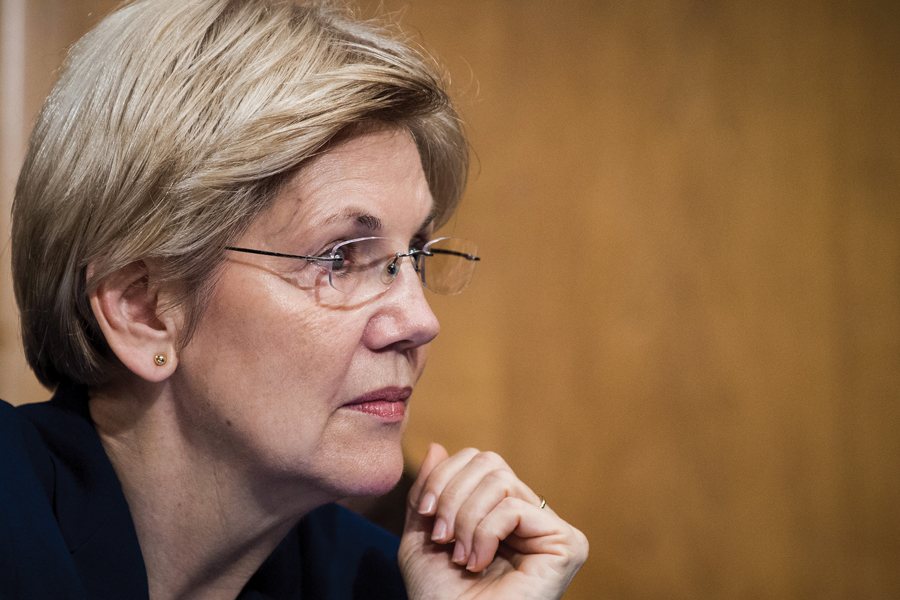Democratic presidential candidate Elizabeth Warren proposed eliminating student-loan debt for an estimated 42 million Americans with a wealth tax, seeking to show young voters she would ease one of their biggest economic burdens.
The plan would eliminate as much as $50,000 in student debt for anyone with household income of less than $100,000, and partially cancel debt for those who make as much as $250,000. Beyond $100,000 in income, the $50,000 in per-person debt forgiveness falls by $1 for every $3 earned, zeroing out after $250,000.
In other words, those who earn $130,000 are eligible for $40,000 in student debt relief, while those who make $190,000 can lower their loan amount by $20,000.
"The enormous student debt burden weighing down our economy isn't the result of laziness or irresponsibility,"
Ms. Warren wrote in a blog post published Monday. "It's the result of a government that has consistently put the interests of the wealthy and well-connected over the interests of working families."
(More: College costs can sink parents, too)
With a university admissions scandal focusing attention on the inequities of U.S. higher education, making college accessible for all is increasingly a campaign theme on the left. Ms. Warren's plan also calls for eliminating undergraduate tuition and fees at two-year and four-year public institutions.
Her campaign estimates that her debt cancellation and free-college policies would cost $1.25 trillion over a decade, and calls for financing it with a portion of the $2.75 trillion in revenues from her proposed annual tax on wealth of more than $50 million.
U.S. student debt topped $1.5 trillion last year, according to the Federal Reserve. Ms. Warren's policy seeks to help millennials weighed down by student debt and to prevent the same fate for the next generation of Americans who'll become eligible to vote in 2020.
Since taking the first step in her presidential bid on New Year's Eve, Ms. Warren has churned out policy blueprints to offer universal child care, break up large technology firms, add housing investments to cut rent costs and slap a surtax on corporate profits.
The two-term Democrat's proposals are highly unlikely to gain the support of President Donald J. Trump or be considered in Congress while Republicans control the Senate. But with control of the White House and Congress up for grabs in the 2020 election, the question of higher taxes on the rich promises to be a campaign topic.
(More: Washington wants to ease student loan burden)
Ms. Warren's policy would fully cancel loans in about three-quarters of households with student debt, according to an estimate provided to the campaign by Arizona State University assistant professor Raphael Charron-Chenier and Brandeis University law professor Thomas Shapiro.
The proposal also aims to lower barriers to admission facing black and Latino families, two influential Democratic voting blocs.
It calls for expanding Pell Grant funding for non-tuition costs and creating a fund to assist historically black and minority-serving universities. Universities would be forbidden from considering criminal history or citizenship status when deciding whom to admit.







